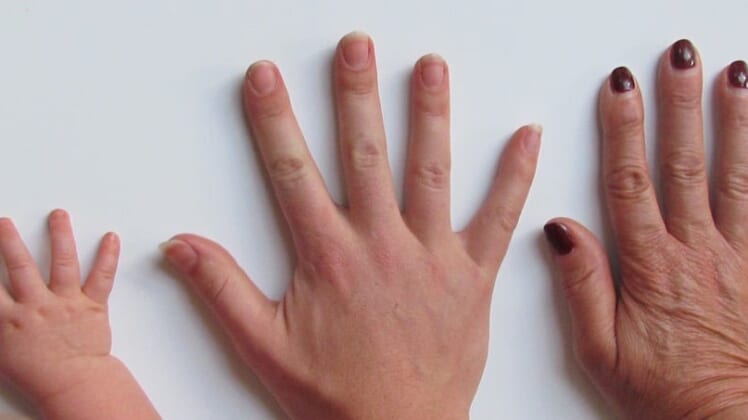
If you’ve done any scrolling on social media or viral sites lately, you have probably come across a few prediction quizzes. By answering a handful of questions, these quizzes will try to predict your favorite pet, dream vacation, where you live, or something else about you. You can even find websites that try to predict your future appearance! While you might find the tests or technology fun to try, can they really predict your future?
One such web-based program claims to do such predictions with at least some basis in reality. Orange, a telecom company, created the site Future Self to show people what they might look like 20 years down life’s road.
To do so, programmers used facial recognition software that analyzes a person’s face via a computer camera. They modeled a human-like head and shoulders for the program on which it could base the features of the current user. The program then applies dynamic textures and lighting, aging the person into the future.
While the programmers did a solid job, Future Self does have a few issues. For one, the female models tend to look similar to each other rather than resembling the site’s user. Overall, the results could have potential plausibility, but age does seem to take a grand toll.
Liquid Collagen: Is it the Fountain of Youth?
Considering the Family
The ability to age someone with high accuracy actually holds great value today. For example, police forces need accurate predictions to help them find people who have gone missing.
In late 2015, scientists from the University of Bradford developed an aging software that they used on the royal toddler Prince George. Unlike other programs, this software actually uses several specific facial features and includes factors from the parents and various relatives. The more layers that scientists can add to the program, the more accurate the end result will be.
To check their program’s accuracy, they also run the original picture and the predicted images through a face recognition software. According to Hassan Ugail, the University’s Professor of Visual Computing, the software ages through a natural progression without accounting for diet and environmental processes. Ugail expects that the software has an accuracy level around 80 percent.
While this prediction method shows promise, is it enough to call age prediction a science? For the software used on Prince George, the researchers may need more data and testing that confirms its accuracy.
How Diet and Exercise Affect Your Risk for Different Cancers
Young Children and Age Predictions
In another program tested by the University of Washington, researchers focused on accurate predictions of young children. Because young children are still growing, scientists find the process more challenging. Their facial shapes may change considerably and take on features of one or several family members.
In this study, the researchers developed software that could automatically age a child through a detailed progression. The software has surprising accuracy and still works well under a variety of poses, lighting, and expressions.
To gain the program’s accuracy, researchers used the average of thousands of faces across various ages. In doing so, they could actually account for the variety of visual changes that a person may go through.
In addition, the researchers tested their method of prediction against over 80 human faces. They input a picture of the person at a young age and compared the results with actual pictures as the person grew up.
Taking things a step further, researchers then asked people at random to identify the real photo. They found that people picked the software’s generated photo just as often as the correct one. People simply could not distinguish between the two.
However, the younger the child is, the software or human-made predictions have a much harder time performing accurately. Babies features change drastically as they age, and researchers still need more testing to hone their processes.
Predicting someone’s age is a tricky process. You might have fun using age progression websites that visualize your future, but the accuracy seems to vary between programs. So far, only those accounting for family traits and common aging variations have produced the best results. So before you believe your computer-generated future self to be your doom, you might want to verify the program’s depth of research first.
